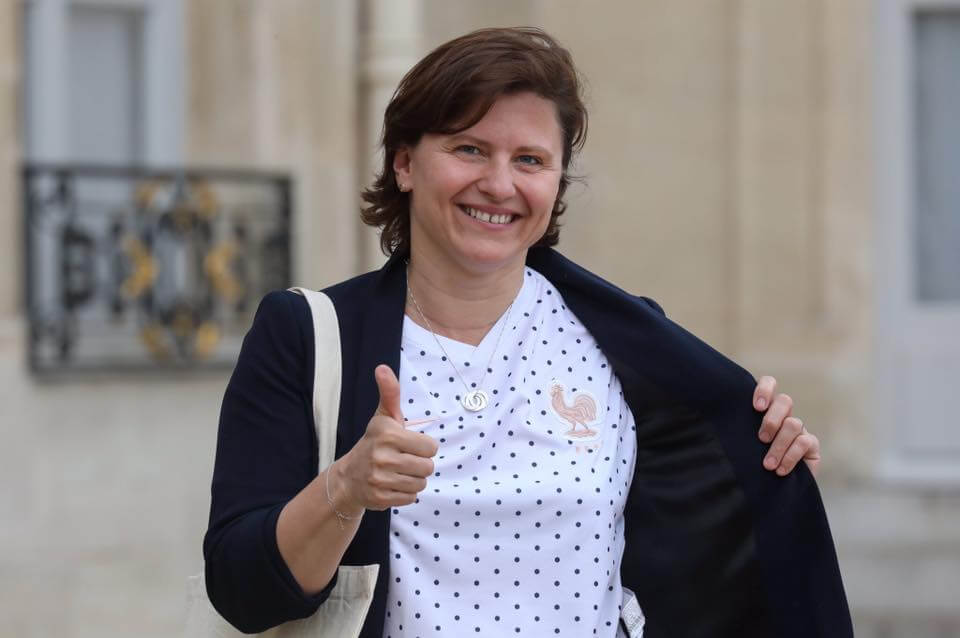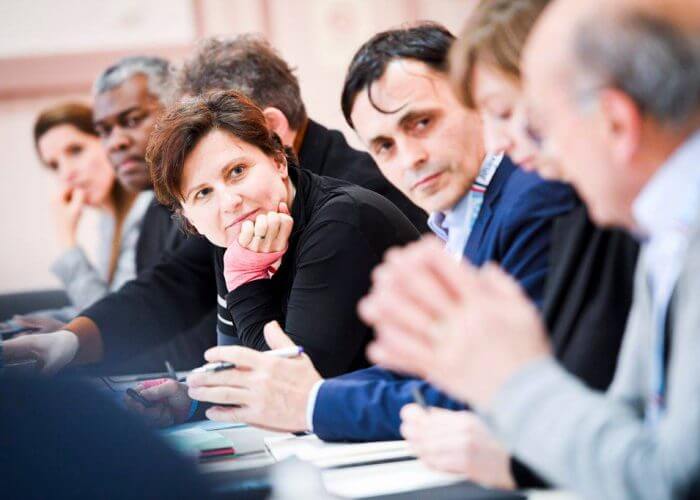Roxana Maracineanu Adds Aquatic Fluency, Sport Law & Safety To France’s Paris 2024 Goals

Paris 2024
Roxana Maracineanu left Romania as a child with her family in search of a better life in France. In January 1998, she claimed the World title over 200m backstroke, went on to work for French radio and L’Equipe as a expert commentator. These days, she is the Sports Minister of France – and is wasting no time on her ministerial mission to place swimming – as well as safe spaces in sport and a new Sports Law – at the heart of health and wellbeing, as well athletic excellence, in every corner of France.
Maracineanu wants the benefits of that to feed into the elite performance outcome for the nation at a home Olympic Games in Paris, 2024.
From January 20 to 23 in Reims, the Minister will head “a consensus conference on Aquatic Fluency” (support for swimming, for example, from grass roots to Olympic podium all the way to the home Paris 2024 Games), while next month she will open a Convention on Violence in Sport ahead of a new Sports Law set to be framed in France before the Tokyo 2020 Olympics get underway in July.
The aquatic fluency plan brings together representatives and experts from schools, higher education, communities, sports, including the elite world of performance sport, and the Ministry of Sport. It covers schools swimming, rehabilitation, prevention, social well-being of communities across France in recognition of the big contribution swimming can make well beyond the realm Maracineanu excelled in as a world-class athlete.
All plans and laws must also feed into and recognise the needs of elite sport and do no harm in that arena, she says.
Aquatic fluency is one of five big projects that Maracineanu listed as her goals for what sport might do for France on the way to the Paris 2024 Olympic Games, with results tangible and programs up and running within the year, L’Equipe reports in an interview with the Minister.
By 2022, Maracineanu wants 500 facilities to be assigned “Health Sports Centre” status across the country, the first 138 of which were announced this week by the Ministry for Sport and Health.

Roxana Maracineanu – Photo Courtesy: Roxana Maracineanu
The plan includes working with Jean-Michel Blanquer, a French jurist and government official who has served as Minister of National Education since 2017, on the link between aquatic leisure and health activities and school swimming across France. Maracineanu has appealed to sports leaders, community leaders and the business and commercial sectors linked to swimming and other sports in an exercise that will include a nationwide public census. She tells L’Equipe:
“I also want to involve the [owners and managers] at individual swimming pools so that courses are offered for families and neighbourhoods. We need to use every cubic metre of water available in France, including pools at holiday centres, campsites, hotels, etc.”
Feedback from a consultation report handed to Maracineanu last month has been requested from all sectors, including community organisations right through to powerful trade unions, but the minister has already nailed her own colours to the mast: “I agree with the report’s findings: the State must continue to remain present and we must continue to help the federations to structure themselves, gain financial autonomy without this transition damaging the well-being of the athletes and their performance. We already have consensus on some of the recommendations and the their implementation will change the overall performance of our organisation.” She adds:
“In the coming year, we expect extraordinary results and where we have to surpass ourselves, because in four years we have the Games at home, everyone in whatever role they are playing must have the capacity and the desire to give the best of themselves.”
Six sports federations (boxing, karate, kickboxing and Muay Thai, wrestling, French boxing and savate) have already signed up to key parts of the plan before the French Olympic Committee (Comité national olympique et sportif français – CNOSF) delivers its “advisory opinion” at the end of this month and further details of the mission are announced.

Roxana Maracineanu in full flow as Sports Minister of France – Photo Courtesy: Roxana Maracineanu Facebook
On the list of five big goals is a new Sports Law. Says Maracineanu:
“The Council of Ministers will consider this in the first half of 2020. It is an important law on the governance of sport, ethics and the development of the practice. All the stakeholders are currently gathered around the table. A public consultation will be launched to get the views of citizens.”
The latter is among changes already made and others being considered at European and national level that are likely to have an impact on the nature of autonomous governance of the Olympic Movement in the coming decade.



